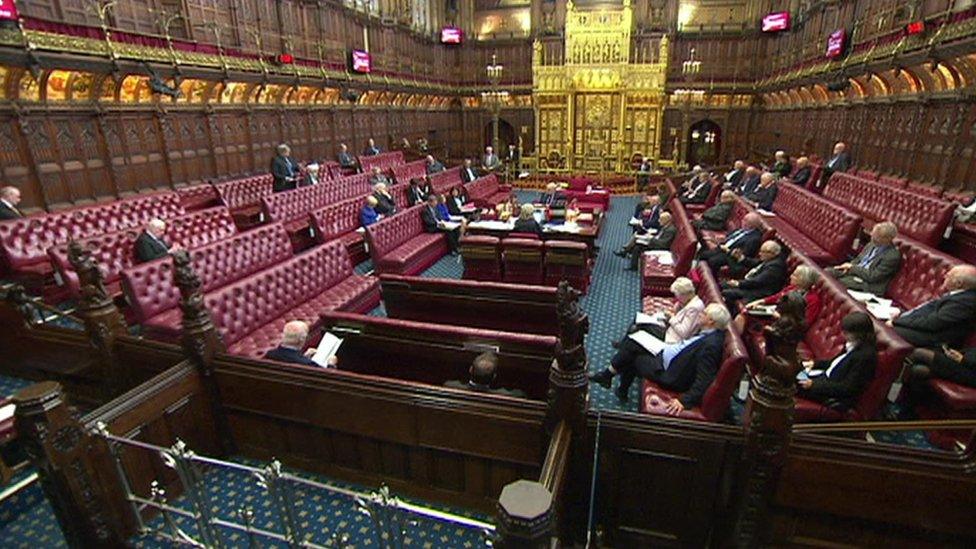Running into deep trouble
- Published
- comments

Meanwhile in the House of Lords...
The government's Housing and Planning Bill is running into deep trouble, with Labour's chief whip, Lord Bassam, promising anything between eight and a dozen significant defeats for ministers, when report stage consideration starts, after Easter.
If he can marshal a combination of Labour and Lib Dem peers, plus crossbenchers and Tory rebels, the bill could be gutted of some of its most controversial sections. Both Labour and the Lib Dems have become adept at getting key crossbenchers to lead the charge, so watch out, in particular for amendments in the name of Lord Kerslake, a former Permanent Secretary in the Department of Communities and Local Government, and housing expert Lord Best.
The big amendments may thud down onto the table at the end of this week, or perhaps during the second week of the Easter break - and may be countered, probably in the second week of that break, by government amendments, offering concessions to head off defeat.
Conservative sources say there is some wiggle room.
Unusually, Labour today published a shopping list of possible changes. They cover all the major elements of the bill: giving councils control over the numbers and tenure type of starter homes; requiring a "one built for one sold" rule, if social housing tenants are given the right to buy; adding safeguards on secure tenancies; imposing new duties on fitness for human habitation and electrical safety on landlords, and ensuring the proposed changes to the planning system don't give developers a free hand.
It's quite a list, but as Labour made clear today, they regard this bill as a target rich environment, in which a strong coalition of peers can be mobilised against many key provisions.
The battles will be fought out over a five day report stage, which is expected to start immediately after peers return from their Easter break - with the fifth and final day of report on Monday 25 April.
That puts the third reading in May, leaving limited time for prolonged parliamentary ping-pong between Lords and Commons, and with the clock ticking toward the end of the Parliamentary session, the Lords will enjoy considerable leverage and ministers will face enormous pressure to make concessions, or risk losing their bill altogether.